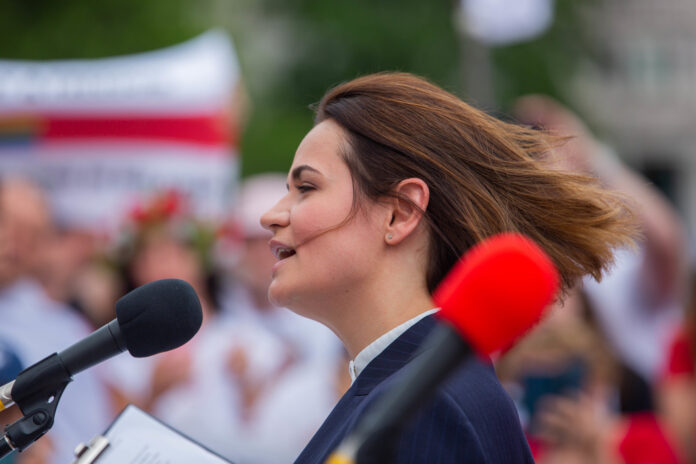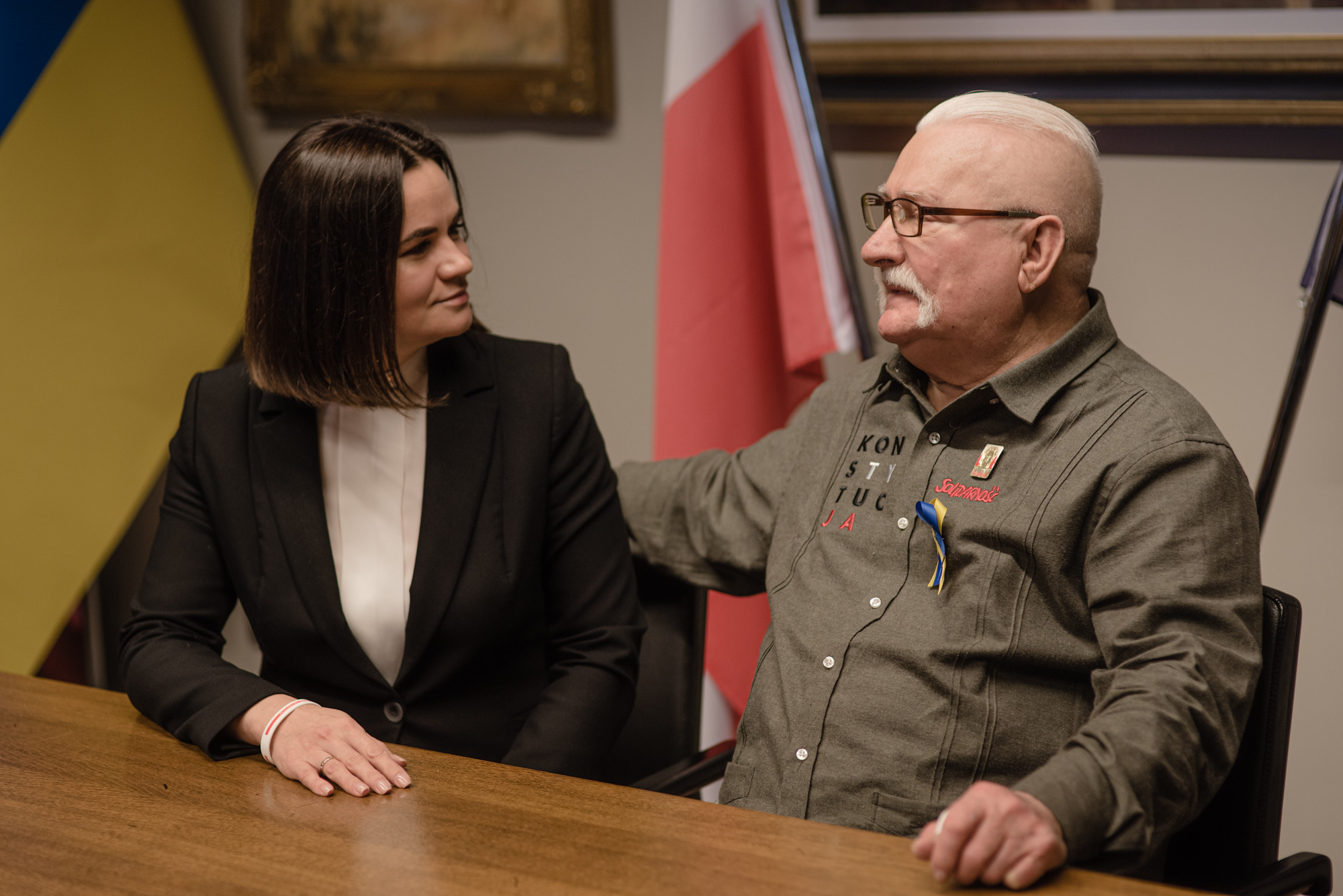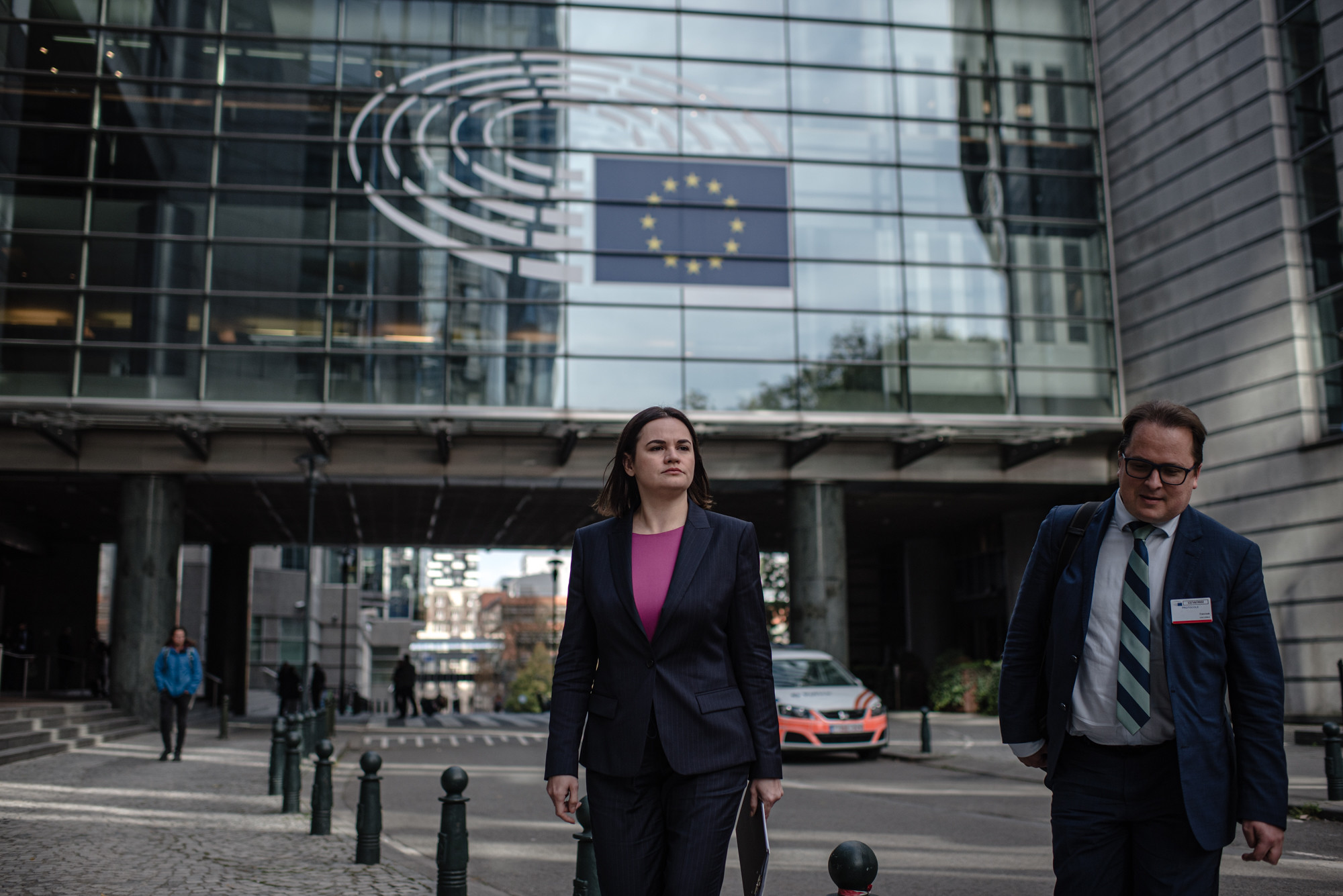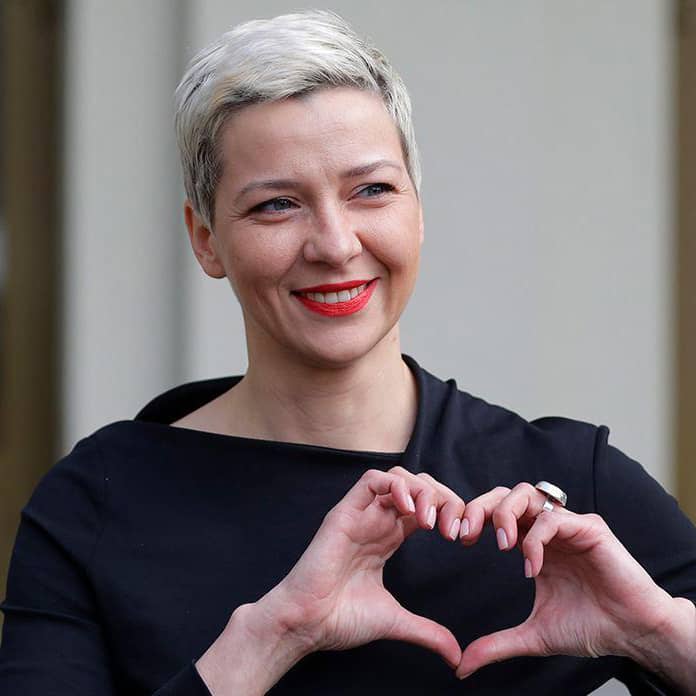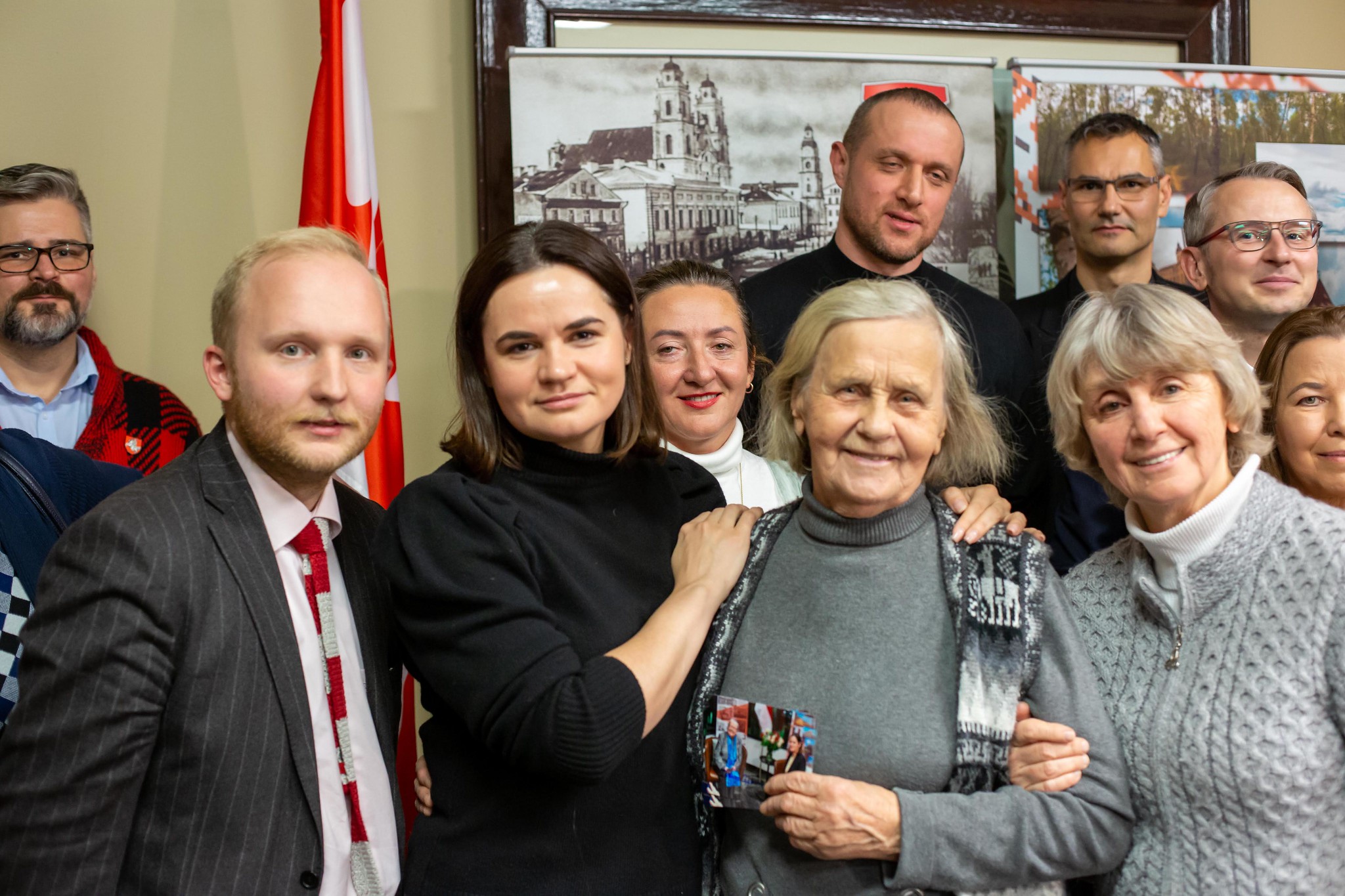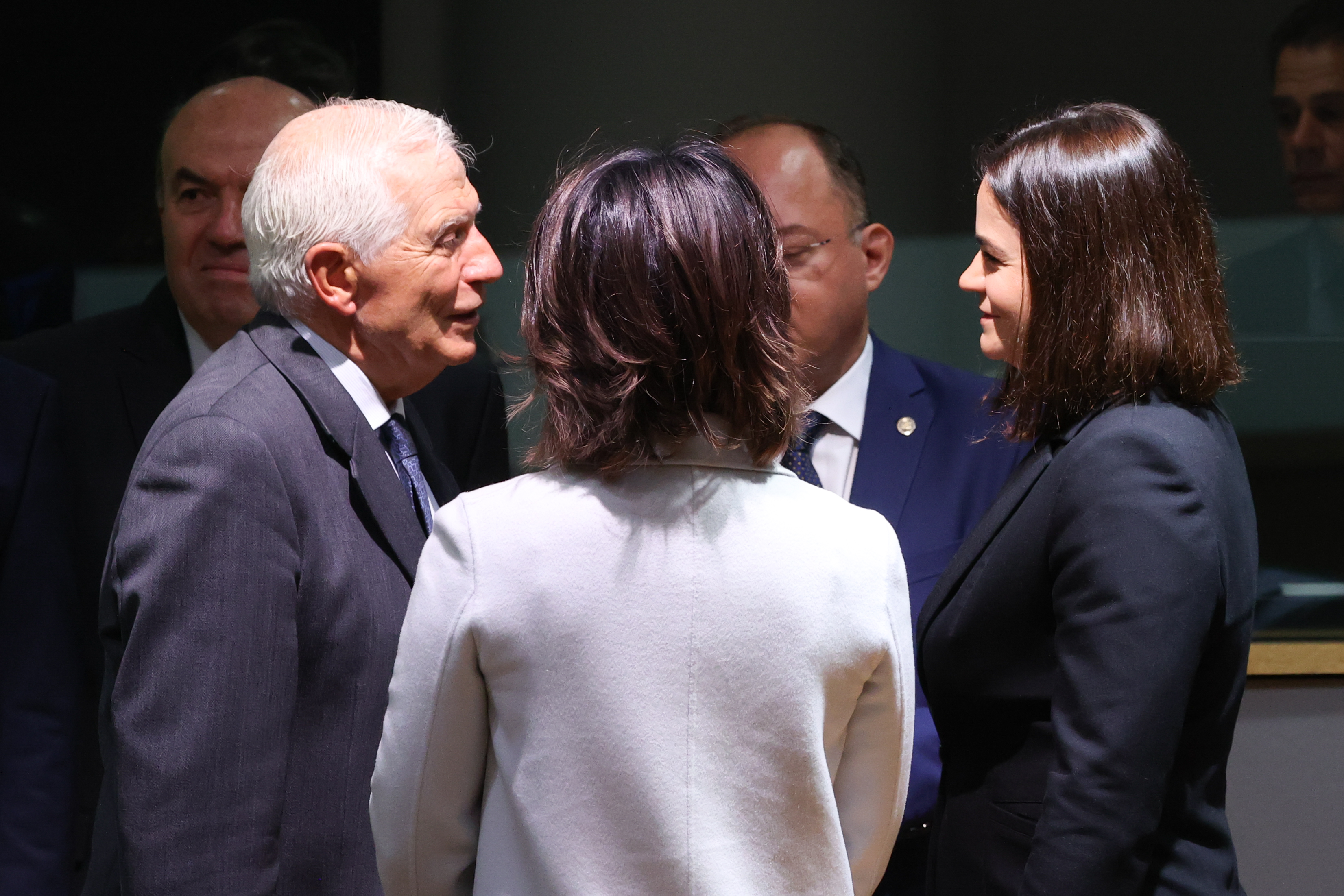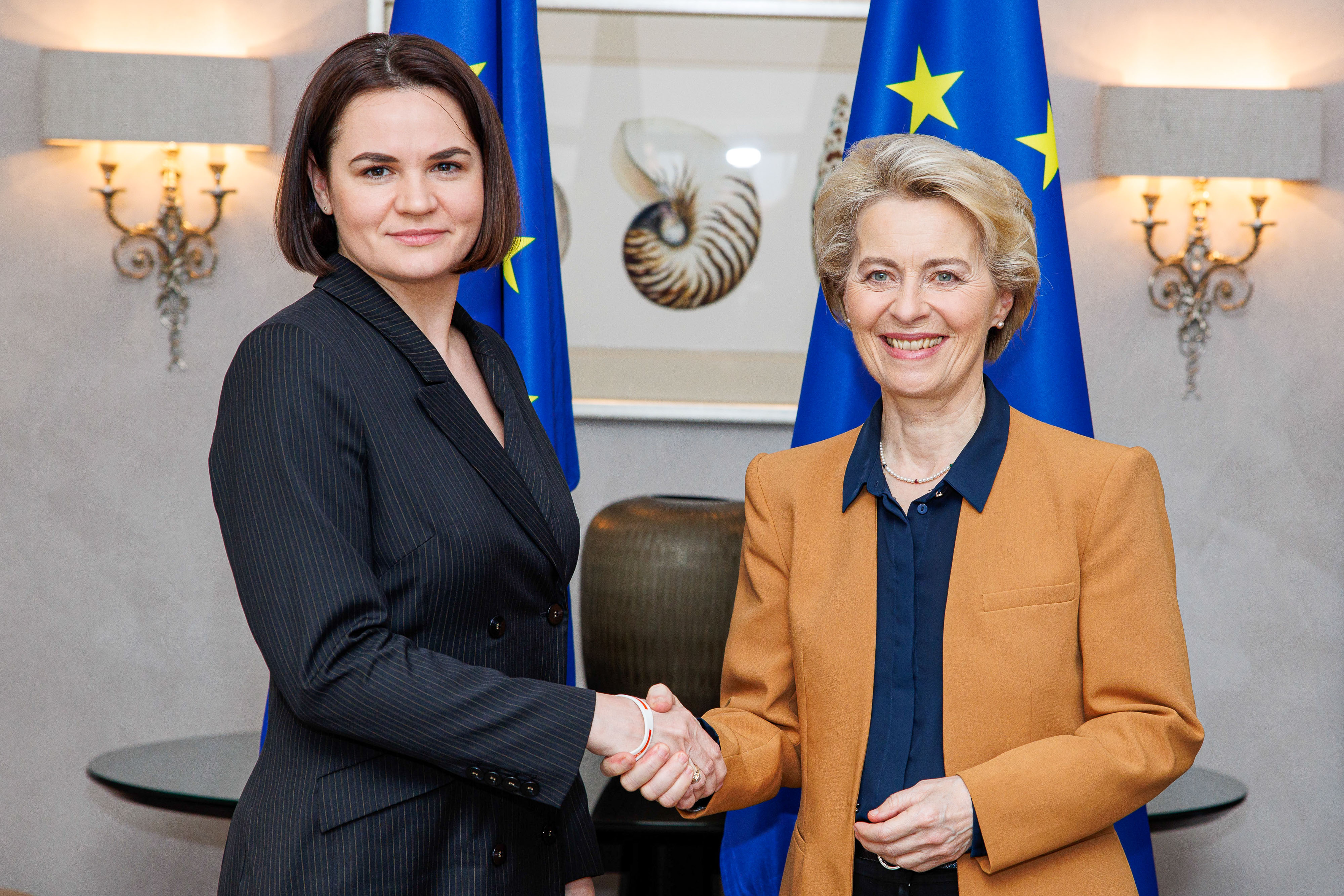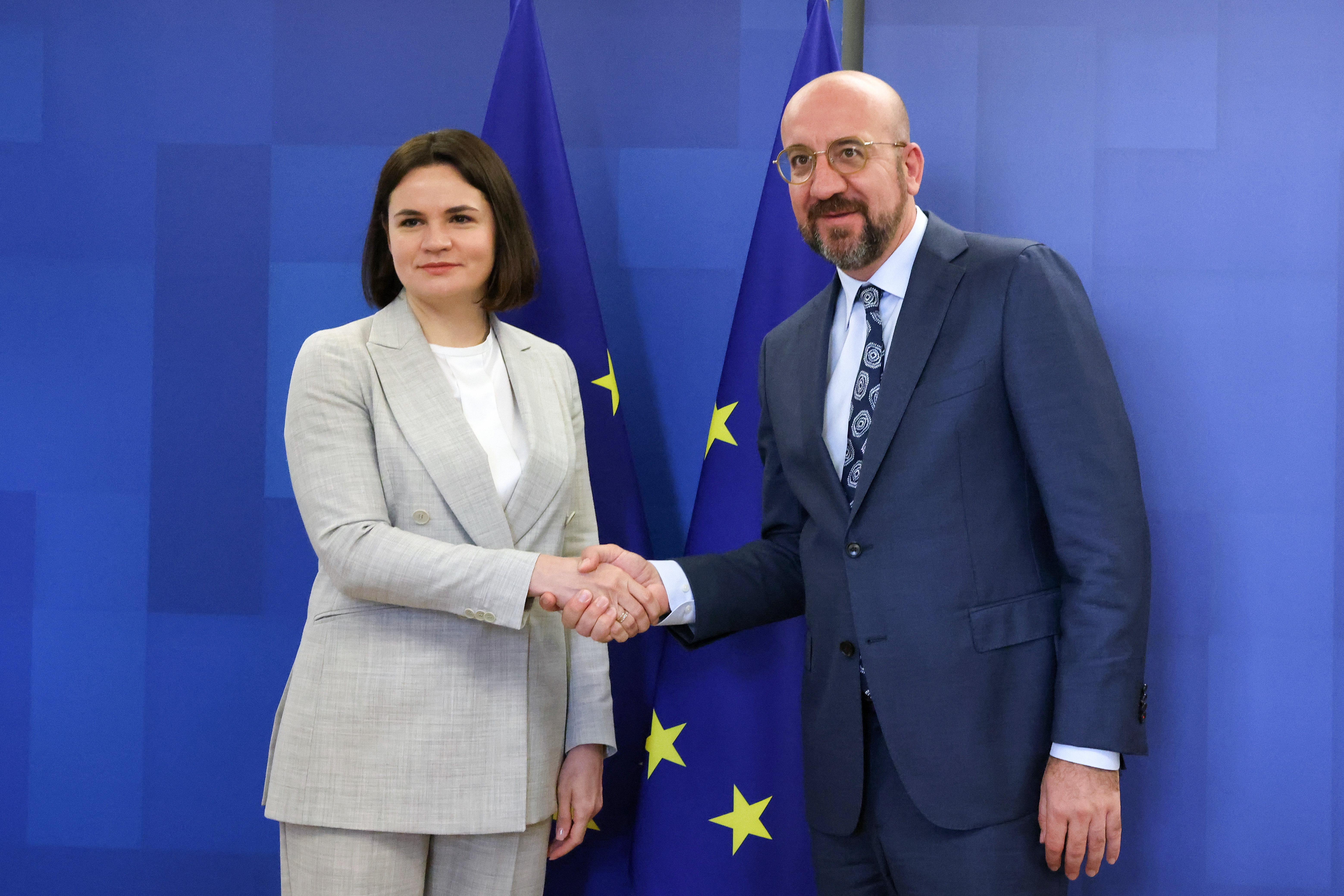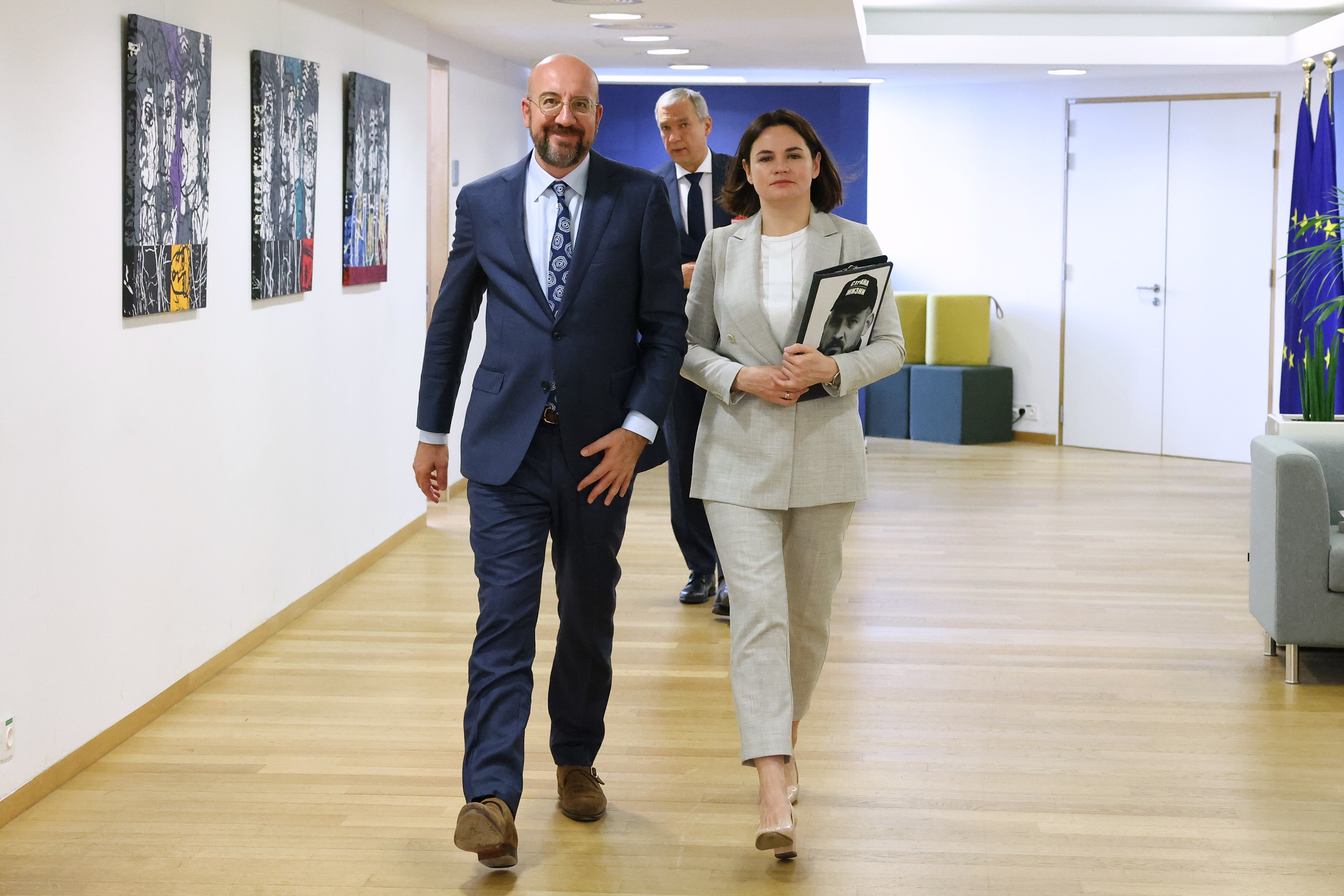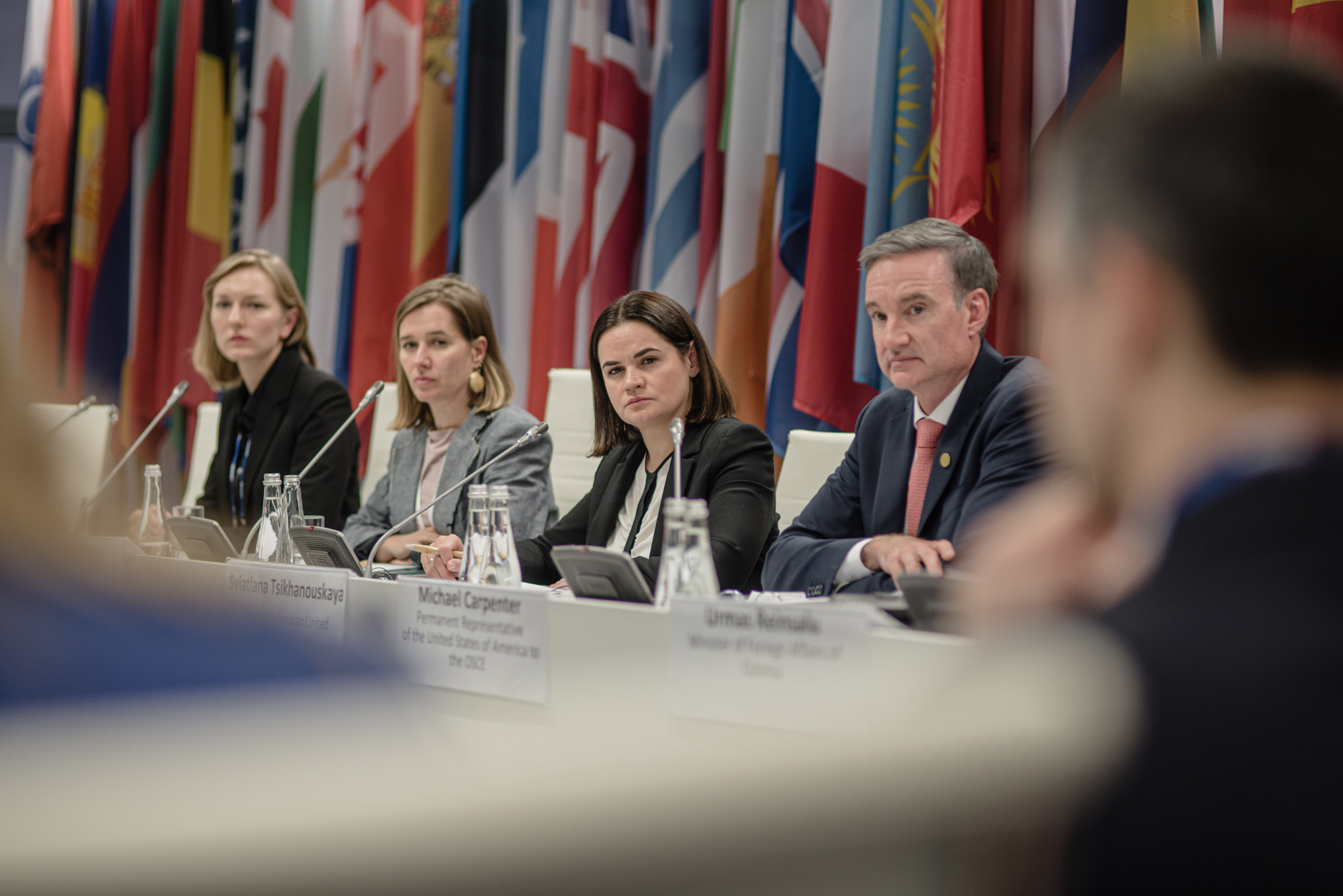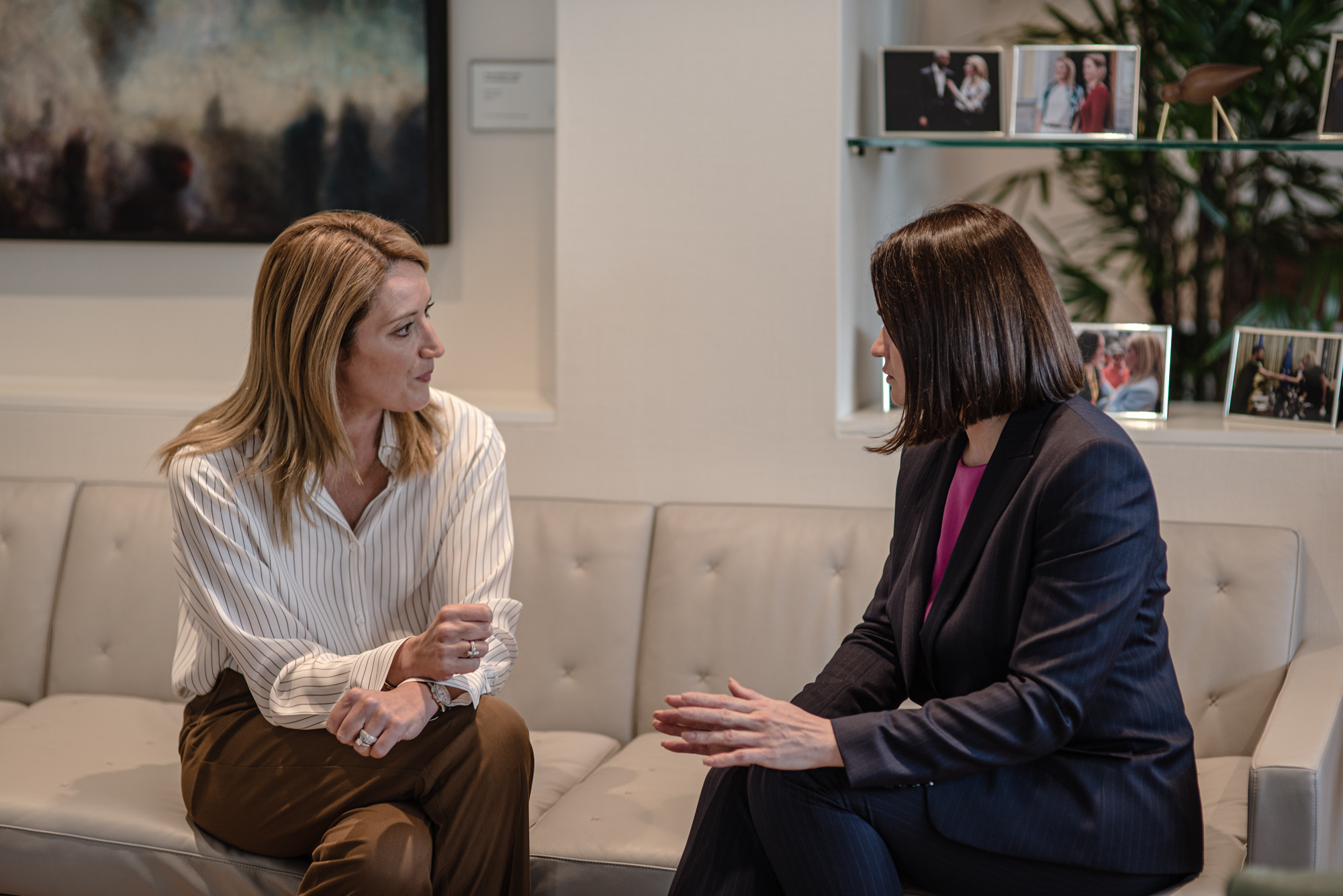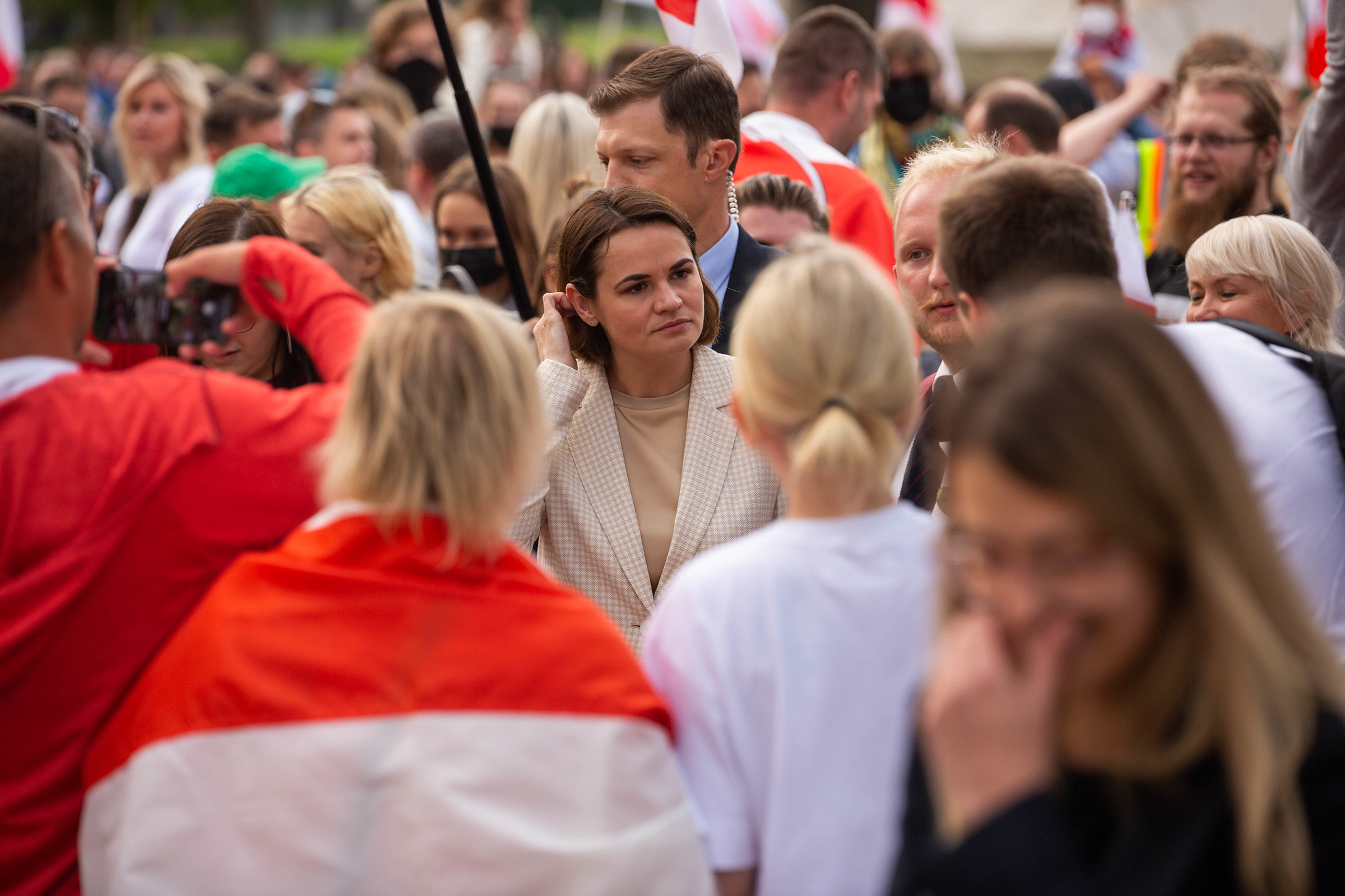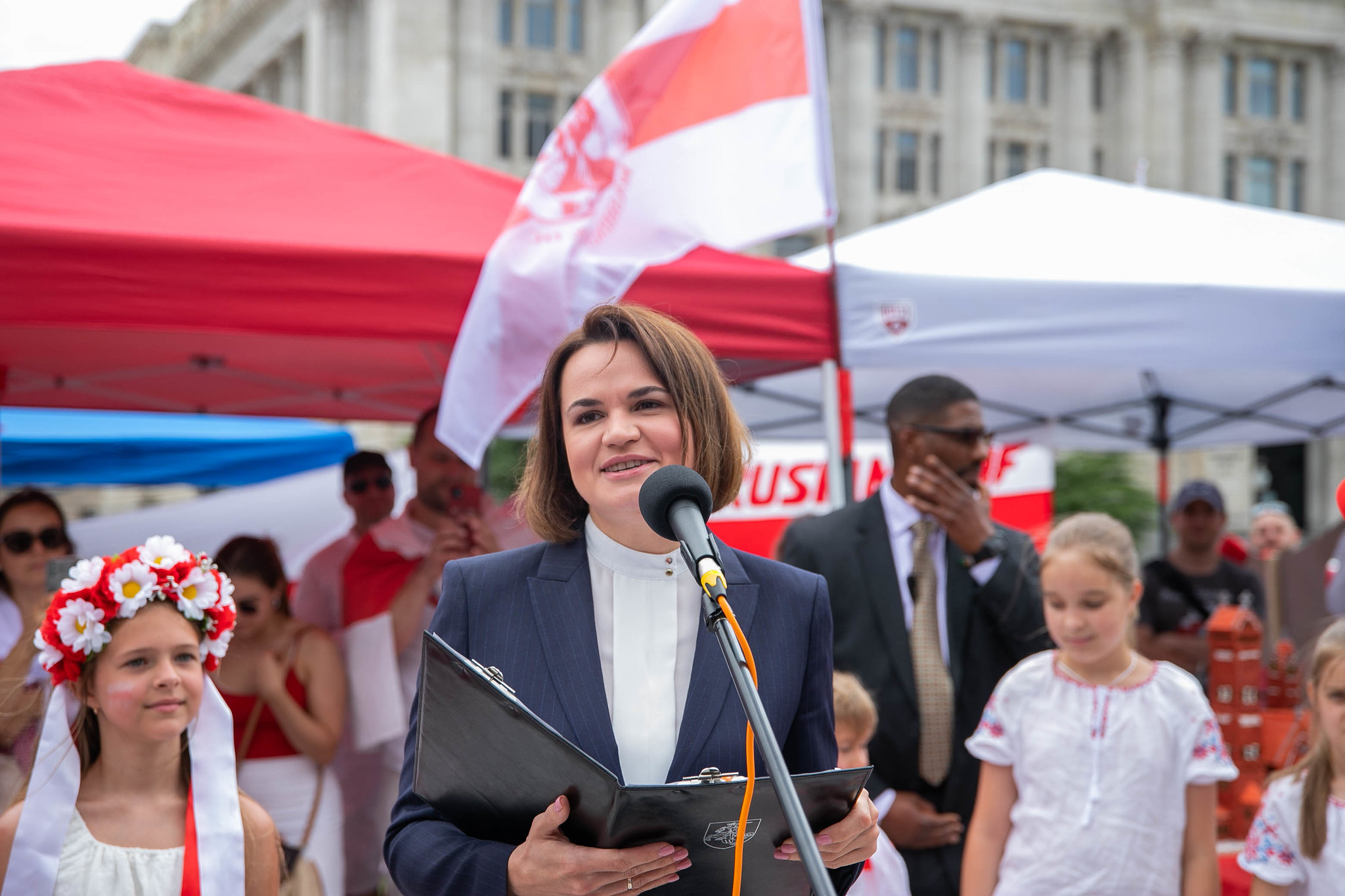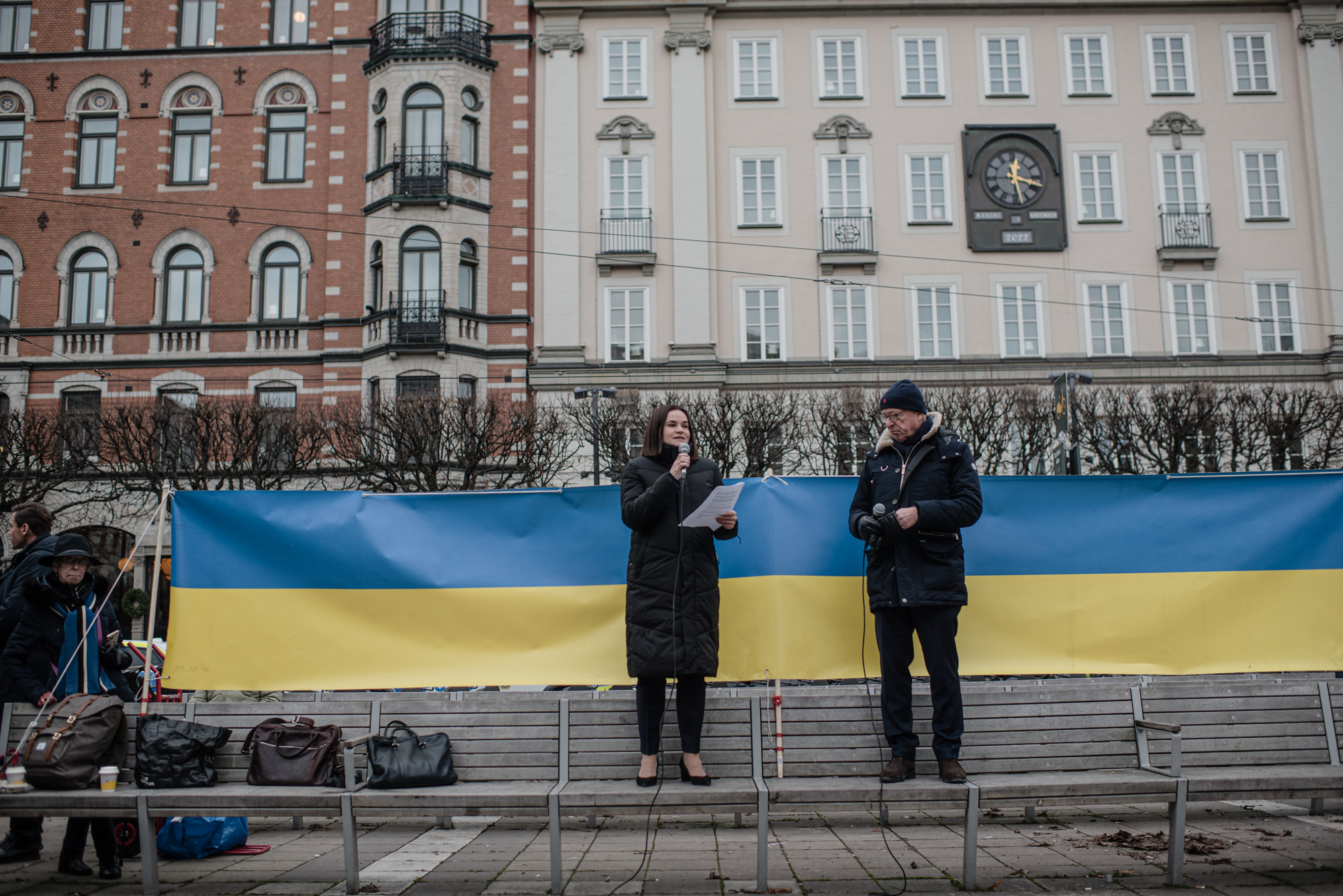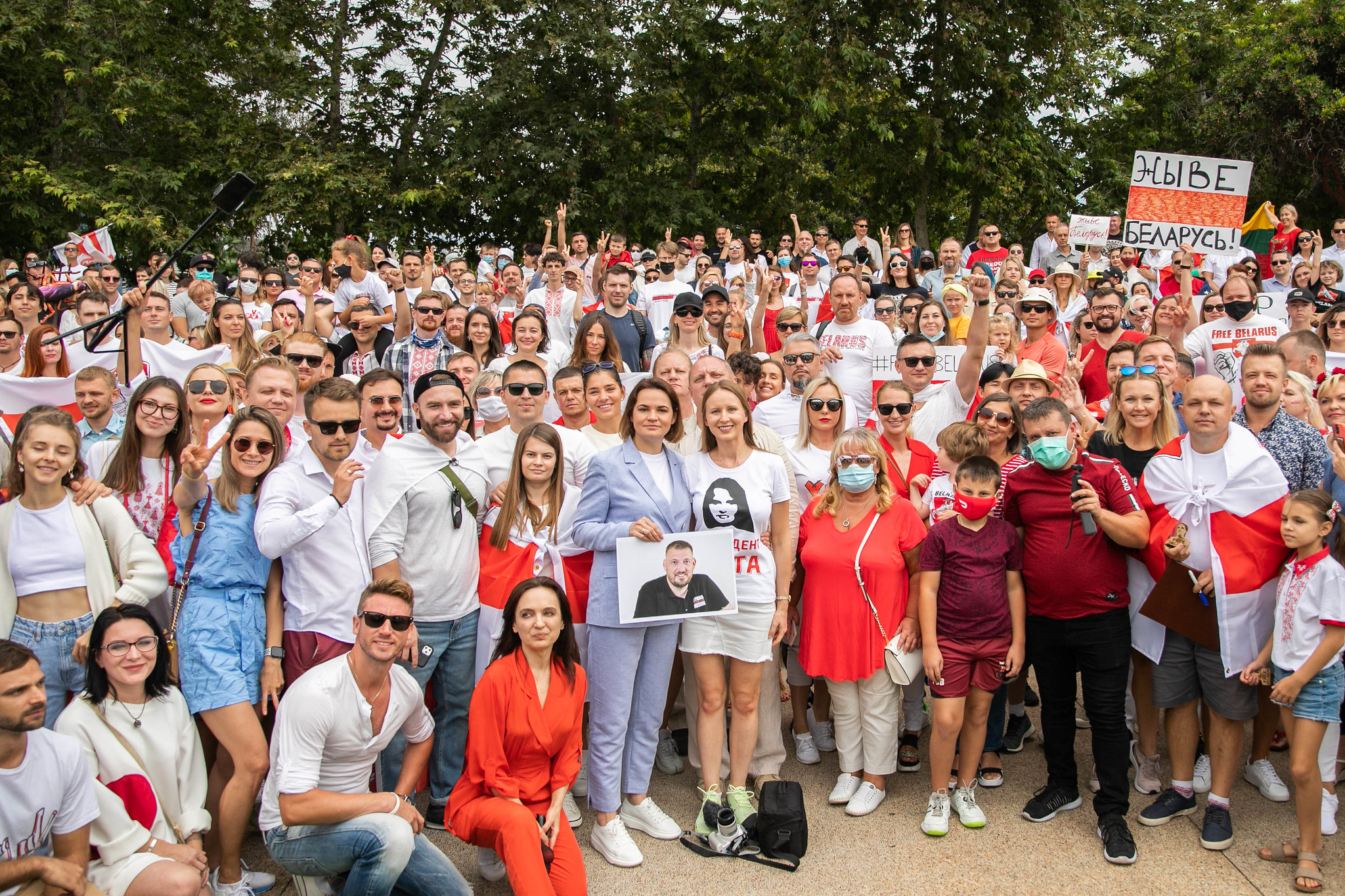Together editor Catherine Feore met with Belarus’s leader in exile
On 9 August 2020, Belarus held national elections. Alexander Lukashenko, who had been in power since 1994 was re-elected as president, in a vote that was recognised as being neither free, nor fair, by most of the rest of the world. Lukashenko made the highly implausible claim to have won over 80% of the vote.
This was the start of Lukashenko’s sixth term in office, but this time was different. Belarusians had had enough and had already coalesced their opposition to the regime around one unifying candidate, Sviatlana Tsikhanouskaya, the wife of an imprisoned pro-democracy activist Siarhei Tikhanovsky. People poured onto the streets in a massive peaceful protest, workers who had been thought to be supportive of the dictator shouted, ‘Leave!’ when he visited their factories, EU foreign ministers, the European Parliament and the EU’s High Representative refused to recognise Lukashenko as the legitimate president and called for fresh elections.
“Since 2020, the level of repression in our country is only increasing”
Lukashenko reacted in the only way a dictator knows how, with more brutal repression. He would always have one friend he could rely on: Vladimir Putin. Leading members of the opposition would be forced to flee or find themselves abducted, then imprisoned under trumped-up charges. Of the three women who were the faces for change –Tsikhanouskaya, Veronika Tsepkalo and Maria Kolesnikova – two left and Kolesnikova, who stayed, was bundled into a van and eventually sentenced to 11 years of prison. Like with many other prisoners under this regime, including Tsikhanouskaya’s husband who has been in prison since May 2020, there has been no news from them for months on end.
Sviatlana Tsikhanouskaya updated us on the situation in Belarus: “Since 2020, the level of repression in our country is only increasing. Every day in Belarus, about 20 to 25 people are being detained. Since 2020, half a million people have fled the tyranny of this regime. Up to 1,500 people are now detained under politically motivated charges, prisoners are ill treated and often held in solitary confinement. I haven’t heard any news about my husband for more than five months. Nothing at all.”
It’s a bleak picture, the opposition to the regime has been forced underground as it’s impossible to do anything without going to prison. Tsikanouskaya points to someone who donated the equivalent of €20 to the Ukraine Army who was given a six year prison sentence. Even wearing red and white nail polish, the colours of the legitimate Belarusian flag, can lead to punishment.
“I am asking people to keep this fire burning inside them and prepare for the right moment”
However, there is an opposition in Belarus: “Despite the danger there are small structures in Belarus communicating between themselves, it’s a national movement and as soon as the right moment appears they will be ready to go onto the streets again. At the moment I’m asking people to stay safe and not to be too vocal as it’s dangerous and I don’t want people to be detained. I am asking people to keep this fire burning inside them and prepare for the right moment.”
Those who have already left Belarus have more freedom: “We can be more active because we are in safety, but our task is not just to exist within this ‘exile bubble’ we must keep in contact with Belarusians constantly. I’m communicating through video messaging, through different social networks. Lukashenko wants to isolate people, Belarus is like one huge prison, not just for those who are in real prisons.”
I ask Tsikhanouskaya if she knows how much support Lukashenko has: “In 2020, when we still had the possibility of carrying out some sort of reliable polls, his support was around 20%, it is not likely to have increased because people can see the crimes he’s committed and because of the Russian invasion […] People see how Russia is step-by-step occupying our country.”
“Lukashenko says that our country does not participate in Russia’s war with Ukraine, but Belarus is already participating. The first missiles in the war were launched from our territory.” Tsikhanouskaya has given her support to volunteers who have formed a battalion to fight with Ukraine.
“Belarusians see that Russia means war, Russia means poverty, Russia means imperialism”
When Tsikhanouskaya originally addressed the European Parliament, EU membership was not something that was mentioned, I asked her if she’d changed her view on this: “In 2020 there wasn’t a geopolitical choice, we wanted to change the political situation, to get rid of the dictator and build a new democratic country. But now Belarusians see that Russia means war, Russia means poverty, Russia means imperialism. Belarusians who escaped went to the European Union for safety and to escape repression. Now people understand that we should be a member of the European Union. I know that will take time and a lot of effort, but it’s where we are going. We are working with European institutions like the OSCE (Organization for Security and Co-operation in Europe) and there is a contact group in the Council of Europe.”
Tsikhanouskaya acknowledges the measures the EU and others have taken. Over the last three years she has had a dizzying schedule of meetings with many governments and has cemented relationships with parliaments, there are strong links with at least thirty. Her bravery and that of the united opposition have been acknowledged by the awarding of the Sakharov Prize and most recently in the awarding of the Swedish Anna Lindh prize.
However, she is concerned, for example, that sanctions are too easily circumvented and that this needs to be given greater attention. She would like Europe to have a system of secondary sanctions like in the US, where economic sanctions are also issued against foreign companies or individuals that are trading with countries subjected to primary sanctions. She gave an example of birchwood sold by Kazakhstan to Europe that actually originated in Belarus.
Tsikhanouskaya would also like to see a more proactive approach to those in prison. She says the Red Cross and others could be doing more: “Every day they should be demanding access to see political prisoners for themselves. More can be done to support the relatives of prisoners.” But she doesn’t think there is any realistic hope that people will be released: “The system will not release people, we have to treat the illness not the symptoms, the system itself will have to be dismantled.”
Lukashenko recently signed a decree forbidding consulates from issuing or replacing passports to those living abroad. Naturally, those who had to flee do not want to return to Belarus to receive a passport. Tsikhanouskaya is calling for an innovative approach from the international community to address this problem, asking for the recognition of an alternative passport for “New Belarus”: “It’s a very ambitious project, it has never been done, but we have no other choice.”
There isn’t one single thing that needs to be done, there are a range of measures including making the regime more accountable for its crimes and providing further support. She would like to see an EU comprehensive plan, a sort of Marshall Plan, for both Belarus and Ukraine.
“When Putin fails it will be a failure of Lukashenko”
Finally, I ask how close Belarus’s fate is to that of Ukraine. Would a Ukrainian victory have a domino effect? “Lukashenko relies on Putin for economic and political support,” says Tsikhanouskaya. “When Putin fails it will be a failure of Lukashenko.” Nevertheless, she says there will be a need for continued pressure. If there is a negotiation at the end of the war she says that the fate of Belarus must not be determined without the voice of the Belarusian people. To that end, the leader of the United Transitional Cabinet is working day and night: “We have paid a very high price, but I believe that future generations of Belarusians will appreciate the price paid for democratic institutions.”
The full interview:


